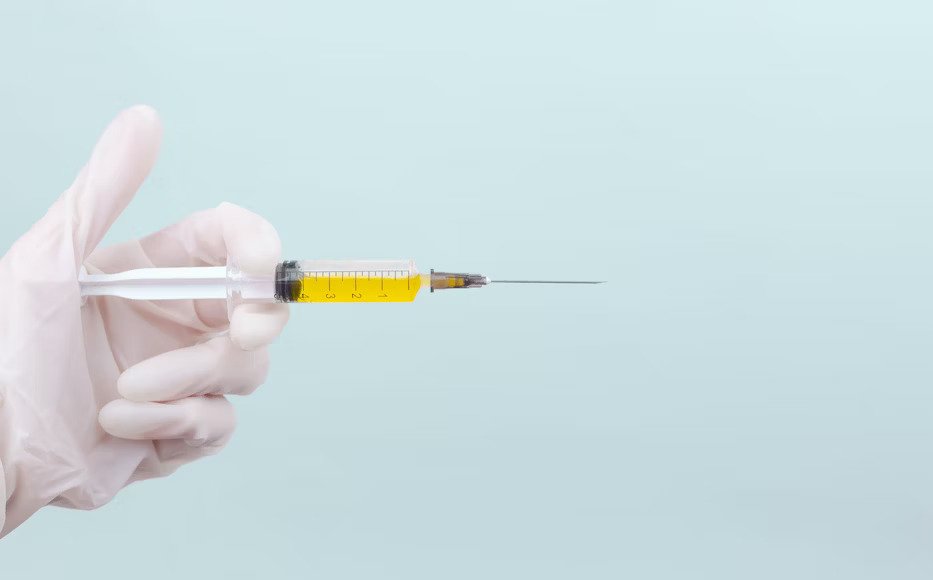Preventive Healthcare
Schick Test: Overview, Procedure, Implications And Result
35733 Views
0

Accurately diagnosing dangerous and/or infectious diseases is critical to successful treatment. The Schick test is an intradermal skin test. It is reliable and painless in diagnosing such diseases.
Learn more about the Schick test.
Overview
Béla Schick invented the Schick test in 1913. It is a quick way to determine if someone has diphtheria. It is a deadly infectious bacterial disease.
Schick test is used for checking the antibodies in the blood against a specific strain of diphtheria bacteria. It is recommended to be done if a patient is suspected of being infected with the disease.
Principle
The scientific principle behind the Schick test is based on antibody-antigen reactions. The bacteria is placed under the patient's skin in a small amount of liquid during the procedure. This is called an intradermal injection. The patient's body is watched to see if it makes antibodies against the bacteria.
If so, the patient is considered immunized and said to have a "positive" result. On the other hand, the patient is said to have a "negative" result if there is no reaction.
Procedure of The Schick Test
The Schick test procedure is as follows:
- A sterilized dose of diphtheria toxin (0.1 ml) is injected intradermally along the forearm of the patient.
- The reaction of the injected toxin on the cutaneous tissue is then examined for any changes or signs of sensitivity.
- In case of a positive reaction, a follow-up vaccination is done.
- As per the standard guidelines, the patient should not leave the test site for around 15 minutes after the test.
- Schick test is done for observing the initial reaction of the body to the toxin.
- When the test is complete, the test results are recorded.
Implications of The Schick Test
The Schick test is an antibody test. It is widely used to detect bacterial infections in an early stage and in an uncomplicated manner.
Here are the implications of the Schick Test:
- Speed: The Schick test has the potential to offer a rapid diagnosis. It also enables the initiation of timely treatment for diphtheria and other bacterial infections.
- Accuracy: By detecting the presence of diphtheria toxin in the patient’s body, it can accurately rule out other infections and, thus, prevent delayed treatment or misdiagnosis.
- Simplicity: The Schick Test is uncomplicated. It doesn’t require complex procedures or sophisticated equipment to be performed.
- Accessibility: We are often limited by resources. But this inexpensive and accessible test helps us to overcome these obstacles.
- Detection: The Schick test can detect diphtheria toxin even at extremely low concentrations. It can successfully identify the risk of other infections.
Schick Test Result
The Schick test is a highly effective method for diagnosing and detecting potential infection of the bacterium Clostridium diphtheria. It is a simple but accurate procedure. It uses an injection of toxins. This is to determine whether a person has been infected.
This medical screening can reveal whether the body has been exposed to the toxins. These result in a positive or negative Schick test result. If the result is positive, the patient will present redness and swelling in the injection area. This is due to the destruction of white blood cells. This occurs when they come into contact with the toxins.
A negative Schick test result demonstrates that the patient has not been exposed to C. diphtheria and has not been infected. This provides relief and allows for accurate diagnosis and treatment options for the patient.
The Schick test is a quick and definite indication of the presence of C. diphtheria. This enables medical treatment to begin as quickly as possible. Receiving a positive result can be unnerving. However, quick action is paramount to avoid further complications. This makes the Schick test a vital tool in identifying and treating the risk of infection while being an invaluable option for health practitioners and patients.
Conclusion
The Schick test is a powerful and invaluable medical diagnostic tool. It is used to identify and determine an individual's susceptibility to certain diseases. It is an invaluable tool for healthcare professionals at Metropolis Healthcare during an initial consultation. It provides an informative discourse on the overall state of the patient's health. The Schick test continues to be a benchmark indicator in healthcare. It offers a vast application in identifying a wide-ranging threat of disease in patients. It is accepted that regular Schick testing is key to early detection, helping protect and manage one’s health.
Metropolis Healthcare clinicians recommend that individuals undergo Schick testing every 6 to 12 months as part of a healthy lifestyle. It can identify and protect individuals from several potential diseases. Our team of medical professionals and scientist-backed personnel are equipped to provide the best possible guidance, care, and support.
The Schick test is an essential diagnostic tool in medicine. It should be taken regularly to maintain good health and protect the body from the risk of contracting infectious diseases.
Metropolis Healthcare is proud to provide the highest quality and research-backed care to help individuals protect their well-being.













1701259759.webp)









 WhatsApp
WhatsApp